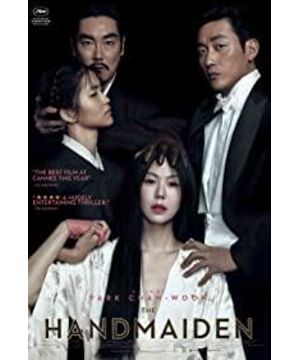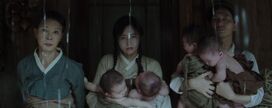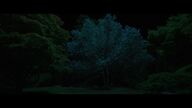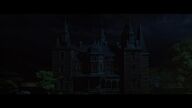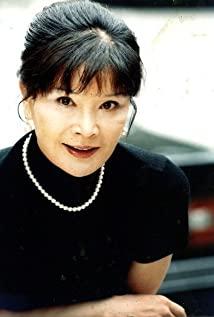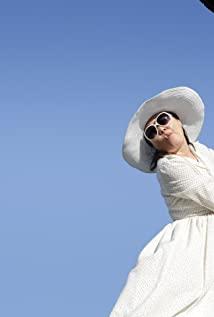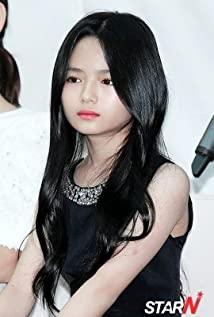Compared with the edited version, is there a magic horse different? The first part 1. Shuji's confession was accessed at different times. The edited version of Suki started when she was having dinner with other maids, while the extended version started when Earl and Suki came to the mansion for the first time to meet. 2. The account of Shu Ji's life experience is different. The edited version is interspersed, and the extended version is narrated. 3. When Shu Ji came to the mansion, she also gave a shot of the gatekeeper old man (that expression is grim...). 4. When Mrs. Sasaki led Shuji to the servant's room and went up the stairs, she gave a front-facing camera of Mrs. Sasaki. 5. The maid who stole Suki’s shoes cried and returned the shoes to Suki before the lady's confession part appeared. Suki was stunned at the time... (The cut is reasonable here, otherwise it is easy to guess that it was a lesson from the lady. Shoe-stealing maid) Then a maid ran to everyone and said quietly that the earl was coming, and everyone looked idiotic and happy... 6. When the earl came to the mansion and saw the lady pretending not to know Shu Ji, he gave it back Shu Ji had a coin, and later when Shu Ji met with him, she flicked it with her thumb (Earl also turned it over~). 7. There was a scene where Shu Ji changed oil painting tools and ran back in the camera. When she saw the young lady and the earl kissing each other, actually Shu Ji ran back all the way and threw the drawing tools all the way... (I don’t know why I saw tears here) 8. The lady slapped the shameless Shu Ji twice and then stuffed her back. After the servant's room, Shu Ji bit on Miss's lollipop sadly. 9. Also, when Shu Ji was waiting for the lady to read aloud, she actually turned through the lady's treasure box, and it was precisely because she turned to the lady's binoculars and looked at the lady through the window that she knew where to pick her up. 10. And ×2, when Shu Ji decided not to care about her anymore, she was still engaged in a fierce ideological struggle with her head covered in her bed~ 11. Maldan taught her to pick up clothes for her to choose, Shu Ji did not say anything Repeated Mo Dan's words angrily in Korean, causing the count to warn her excitedly. 12. When the earl pretended to meet the young lady by chance, the camera shot from the young lady's perspective to the sky gradually darkened with clouds. Part 2 & Part 3. 1. When the perverted uncle hits Miss's hand with Burmese bell, the director gave her a close-up shot of her little hand (it is red and swollen, looking at the old worried...) 2. Miss is standing on the stairs Mrs. Sasaki slapped Mrs. Sasaki there. In fact, Mrs. Sasaki really went to her uncle to file a complaint. Therefore, before telling her about the mental hospital, the uncle hit the lady's face with a ruler. The lady was red and swollen again... 3 When Miss saw her aunt hanging herself, there was a frontal shot showing her using a doll to cover her face. 4. Before the uncle asked her to demonstrate the posture on the missing page, Mrs. Sasaki untied her clothes. 5. After the uncle whispered the earl, the earl pretended that he had missed something before turning back. 6. When the earl pretended to look at Shu Ji, he turned his head and gave the lady a look. 7. During the showdown between Miss and Earl, Miss deliberately drove Jonke out, and Jonke hugged a pillow and left. 8. The naked Shuji that Miss peeped through the cat's eyes actually had a shot of her putting on her clothes before going to sleep. 9. The earl also interjected a word between the uncle's introduction of the obscene book he bought back from Hamburg. 10. The young lady said that she took Shu Ji to a good place (Xinshuguan), and there was a scene where Shu Ji was taken aback by the fake snake when they came in. 11. While Miss and Shu Ji were waiting for the earl’s ship on the misty shore, Miss took the initiative to trim the hair on her cheeks for Shu Ji (with an indifferent and handsome face). 12. Shu Ji put on the wedding kimono for the lady, and a centipede climbed into their suitcase. 13. Before Miss and Earl were in the same room, Suki combed her hair, suddenly Miss fell on Suki and kissed wildly, Suki gently pushed away and stood up, then Miss looked at Suki with a smirk and smirk. (Seeing this, I think I was decisively fanned by Jin Minhe... and it’s okay to not cut it here) 14. Sook Ji opened the door, and the lady saw Sook Ji happily come over to kiss her, and Sook Ji was still there. The young lady was pushed away from the outside, her face was aggrieved, and then Shu Ji's boyfriend stroked her face to the max, telling her that she must be calm. (Their dog food was spilled all over the screen~) 15. When I heard Shu Ji suggested that the earl send herself to the mental hospital, the lady smiled at the door~ 16. Miss put on a kimono for Shu Ji Suddenly he gave the peeping shopkeeper a fierce look! 17. When the earl braved the rain to honor the inheritance of the young lady's father and returned to the hostel, the young lady was holding her umbrella upside down by the pond. 18. After taking the risk of pouring the earl's medicine, the young lady took away the passport from the earl's pocket. 19. A shot of a young lady taking a passport photo in the nursery has been cut out. 20. Also, Shu Ji not only knew that the lady had taken the box with the rope, but she also saw the doll that had been with her for many years lying on the bed, covered with the quilt. (It's a bit messy, I hope you can forgive me~) Personal opinion: I brushed the edited version of "Miss" ten times. My first feeling after watching the extended version was that the character of Shu Ji was fuller, and her thought change was more reasonable. About thirty-two details of the difference in more than two minutes are still infinite, even indispensable. From my point of view, the extended version is more like the BBC's "Finger Craftsmanship". The narrative method of the story is roughly the same as that of the English version. However, I think the extended version and the edited version are not good or bad. Each has its own advantages. For example, the plot arrangement of the edited version of "Miss" is even more impressive, and the extended version of "Miss" makes up for some of the shortcomings of the awkward shot switching of the edited version. I personally thought that you cut too much, Shu Ji and Miss Park's rival drama Director Park! ! ! "Miss", undisputedly, is a masterpiece. It is indeed a sincere work that can stand the test. For the Blue Dragon Award, I’m waiting for everyone from the crew of "Miss" to go up and turn around and come back with the best heroine~~~(੭‾᷄㉨‾᷅)੭ Digression: When I saw the lady After learning a swear word with Sook Hee through Cat Eye, I immediately remembered that Director Park’s "Old Boy" seemed to have a similar stalk: After Wu Daxiu was released from secret imprisonment for fifteen years, he met a group of punks on the road. When the fight was about to start, Daxiu heard a gangster spraying swear words at him. Surprisingly, his reaction was not anger, but curiosity→_→, he felt that he had learned something~ And the stalk of Brother Octopus, both movies appeared. Miss and Wu Daxiu are innocent people imprisoned. If anyone is more miserable, I would think that the young lady is in a more miserable situation. Because the young lady has been mentally devastated day after day for more than ten years, not only can she not resist, she is also intimidated by her abnormal uncle. The whole mansion was lifeless, and she would become a walking dead. It was a certain fact that if Shu Ji hadn't appeared. Wu Daxiu's path of self-salvation was ultimately controlled by Li Yuzhen in his hands, so there is a confession that life is not as good as death in the end. The young lady's self-salvation began when she met Shu Ji frankly, and when she stepped over the low wall and firmly believed in this little girl, she was free. From "Old Boy" in 2003 to "Miss" in 2016, Director Park's works are still murderous, but gradually mature and stable. But there is one thing I think has never changed, that is, I don't forget to add a touch of vivid color to the protagonist. Wu Daxiu put on her little wings for her daughter and sang a nursery rhyme. The ignorant Jin Jin happily told the teacher that she was pregnant by accident. The young lady ran against the sunrise and laughed loudly on the grassland... Without these colors, I felt like I was watching "The Whole Story of Jin Funan Murder" series. Without these colors, I think the dark side of life is so powerless. Director Park said, "Miss" is the cutest work he has ever photographed. And I hope that Director Park can make a "Moe Meng Da Trilogy" in the future. Now, the first one is called "Miss". Kim Minhee is too tall, so that Kim Tae-ri has to work hard to stand on tiptoe... (As a 170+ person, I feel deeply, my friends usually tell me to squat down, otherwise I will be friends~) Aunt's strong acting skills are almost Take away the halo of the protagonist of the lady~ I always think that in fact, the BBC version can add the role of Maud's mother, and then this can only be an idea...
-----------------I am a dividing line--------------------
I don’t know if Dazha has seen the original novel "Fingersmith" of the movie~
After reading the Chinese version recently, I feel that the character portrayal of this film differs the most from the English version, which is...
and many more!
I'm afraid the mud people thought I would say it was Maud's uncle.
In fact, "Miss" has made a bold transformation to the role of Maude and her uncle. This cannot be denied. However, the English version and the Korean version of Maud's uncle have the same tone of character portrayal-dirty and dirty.
The role I want to talk about is Maud.
After reading the novel, I feel that the two versions of Maud on the screen are really not alone. Perhaps let me put it this way, the two directors have very different understandings of Maud.
In "Miss", there is a large section of confession about Xiuzi's life experience, "It would be nice if I was not born", a lonely heartbroken confession is true in the novel.
Xiuzi in Park Chan-yu's perspective is not so insidious and cold, on the contrary, in her heart, there is still a longing for family affection and loyalty to love. In front of Shu Ji, she was both a girl and a woman.
In the English version of Maude, you say she is a bad person and a slut. You really don’t see the end. The impression of this character is always the same. It can even be said that after seeing the ending, there will be a lot of things. People will not sympathize with this character.
Because she is more like a man who betrays the gentleman-angrily destroys the uncle's book collection, resolutely and decisively defends dignity and life safety on Rant Street, and the joy and anger of dealing with the gentleman and the two liars are indifferent. The cold heart-such a complicated personality makes this character more mysterious than the original novel, and it also has the possibility of multiple interpretations.
I think that Director Park returned the Maude in the original book to the audience, but we love the English version of Maude.
Both Jin Minxi and EC have three points in their understanding of the characters in their respective versions of Maud. Of course, this is a good story of deception-the compact narrative rhythm is also very helpful to their understanding.
The pinnacle of EC's acting career has shaped an unsurpassed and charming Li Mod. When people mention the most interpretable and complex female characters in the history of 21C film, Li Moder should be the easiest to be overlooked~
And Kim Minxi's Izumi Hideko has the feminine beauty of an oriental woman. In addition to grasping the character's character well, Jin Minxi also gave Maud the original protagonist a unique temperament.
There is another character, Susan, Shu Ji. In fact, the overall character creation of the two versions is not much different, but I very much agree with Director Park's approach of making the love line in the story clear through the emotional portrayal of Sook Hee's character.
Here, I have to admire the actors who played these two roles, especially Kim Tae-ri. I have never seen the original work and the first screen, I think about her performance in "Miss", not to mention profound and wonderful, but absolutely full of talent. With Zhao Zhenxiong, Ha Jung Woo, and Kim Min Hee, these powerful party scenes in the Korean film industry, she seems to be a big name. Her interpretation of the role of Shu Ji, personally, she fully meets the director's expectations, but I have not seen much of her personal understanding of this role. Maybe people will remember her through this movie, but not through her...
Sally Hawkins, the actor of Susan, some people pointed out that she had obvious traces of skills in "Finger Craftsmanship". But for this role I think she does inject full emotion.
I am convinced that more people will come to remake "Fingersmith" in the future. In my opinion, the story that Park Chan-wook reshaped at the Cannes Film Festival, coupled with the 2005 "Faithful to the Original", "Focused by Craftsmanship", this novel is becoming a model story for feature films. More and more people will know about it, and more and more people will be intoxicated by it.
I finally understand why Park Director said, "I still have a place in my heart that belongs to women's rights." The feminist ideology in "Referring to Craftsmanship" is very gloomy and struggling. It can be said that the whole story is "a weak victory for feminism", but "Miss" is a "victory that destroys patriarchy".
"Finger Craftsmanship" focuses on the good and evil of human nature, while "Miss" focuses on the characteristics of women.
Love is too fragile to be deceived, and too tough to be divided. There are so many mountains and vast seas in love stories. If they can move people's hearts, why should they stick to the secular and focus on them?
What do you think about "Fingersmith"?
(Because the Maude and Susan in the book of Mao are only teenagers, the actors are all rushing for the third time? Ah... I see, such a ghostly complicated role, a teenager can play a good ghost and believe it...)
View more about The Handmaiden reviews


